I can’t believe how much is going on at Manchester Communication Academy.
This afternoon I’m chatting with Jane Ellis who has been with the school’s community department for the last four years.
“I’d worked as a dental nurse for 20 years and was looking for a career change when I applied to work at the school when it first opened in 2010. Back then there were just three staff working on the community programme.”
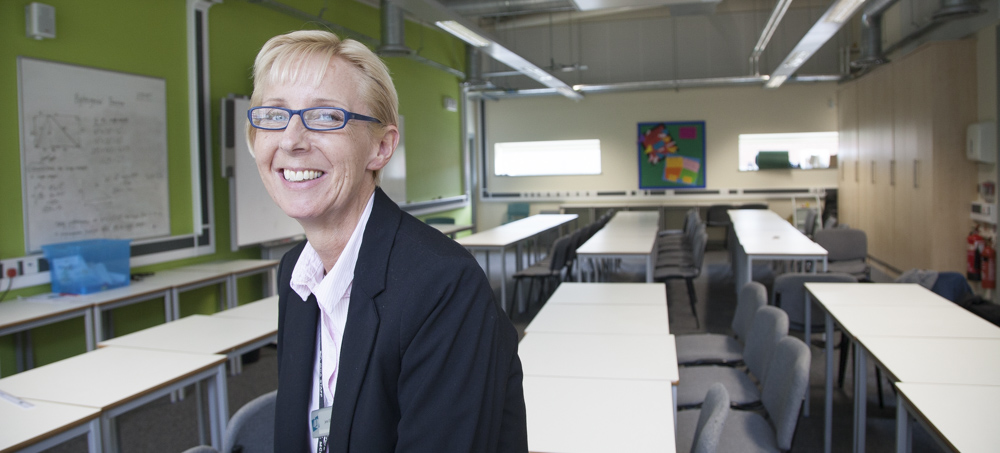 Now Jane is one of a team of 11 whose job it is to support and outreach in to the school’s wider community.
Now Jane is one of a team of 11 whose job it is to support and outreach in to the school’s wider community.
They hire the school’s facilities to local sports and community groups, including a visually-impaired football team and the local scout group. They put on Adult Education courses where English and maths are in high demand.
There’s a ‘Once Upon A Time’ project for older people where you can drop in for a chat and a look back at local history. Jane’s team even includes a resident archaeologist.
“Why does a school like yours get so involved with its community?” I ask.
“As you know, this area is near the top of all the deprivation statistics,” says Jane. “And there are few other resources in this area.”
“It’s as if you’re a community centre within a school,” I suggest.
“We see our job as removing the barriers that people might have to make changes in their lifestyle,” she says. “That way we can help to improve those statistics.”
“It must be very different from being a dental nurse?” I suggest.
“It’s very rewarding. When you see someone come to, say, one of the classes for the first time, they might be quiet and nervous and think they’re not capable. But then you witness a real change.
“One lady, I remember, said the hardest thing was coming though the doors – it can be daunting for some people to just walk in to the building – but now she volunteers for us and has even got back into employment.”
Jane is currently setting up a ‘time bank’ for the area where local people can share their skills, offering to do small jobs for others.
“It could be doing some shopping for an older person,” she says, “or just sitting, having a conversation. There are a million opportunities.”
I ask why people might want to get involved. “Time banking can be a great stepping stone,” Jane explains. “Some people will do it to get volunteering experience, it will give them the edge when applying for jobs. For others it’ll be a chance to build their confidence.
“And anyone will be able to join without having to give back,” she explains, “no one will be in ‘time debt’.”
Jane is one of the newest members of Forever Manchester’s Local Reference Group, overseeing the allocation of funding from the Fourteen programme. “I got to know the Forever Manchester team when I applied for funding for the Frank Cohen alcohol support centre,” she says.
“What Forever Manchester is doing is amazing. They’re bringing people together, like we’re trying to do, and making people aware of what help and support is out there.”
By spending just a short time with Jane I can tell she is a real ‘people person’. She loves to be able to help and outside of her busy job with the Academy she still finds time to support her local food bank.
To get involved with Jane’s time bank, or any of the other activities on offer, give her a call on 0161 202 0161
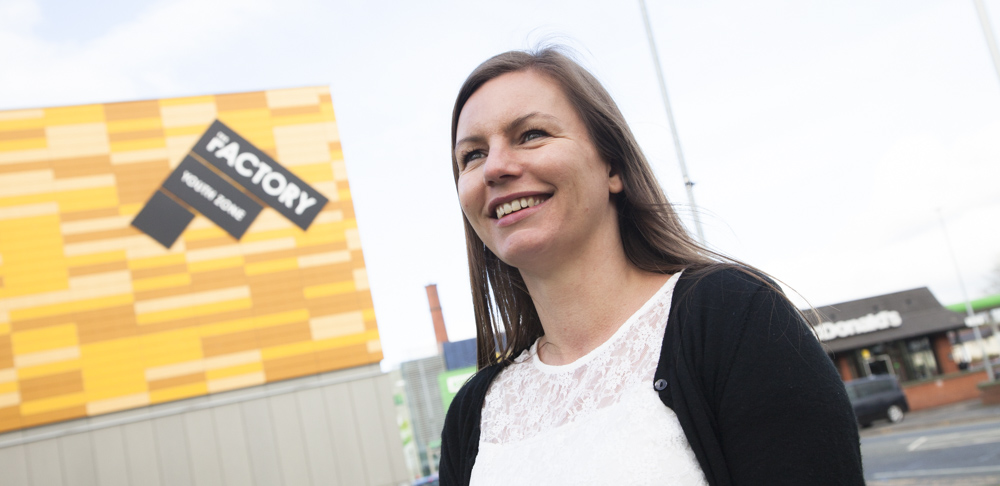 A large colourful box of a building right in the centre of Harpurhey, The Factory Youth Zone is unusual for a youth centre. Pamela explains that it’s run by a
A large colourful box of a building right in the centre of Harpurhey, The Factory Youth Zone is unusual for a youth centre. Pamela explains that it’s run by a 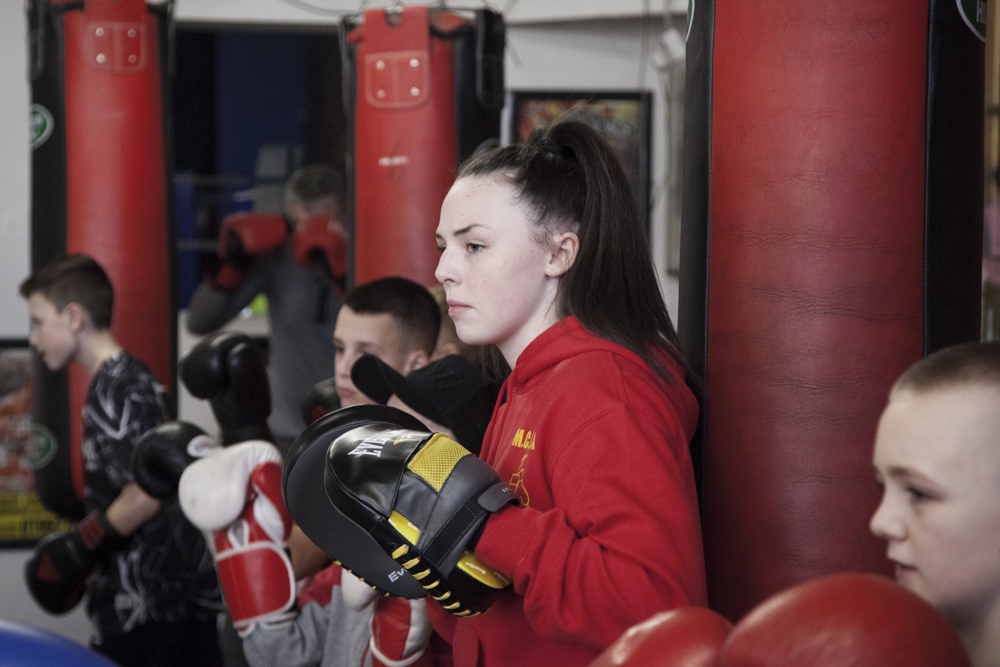 “It keeps you off the street,” Ellie says, emphatically. “You’re here making something with your life rather than out doing nothing. You’re making your future aren’t you?”
“It keeps you off the street,” Ellie says, emphatically. “You’re here making something with your life rather than out doing nothing. You’re making your future aren’t you?”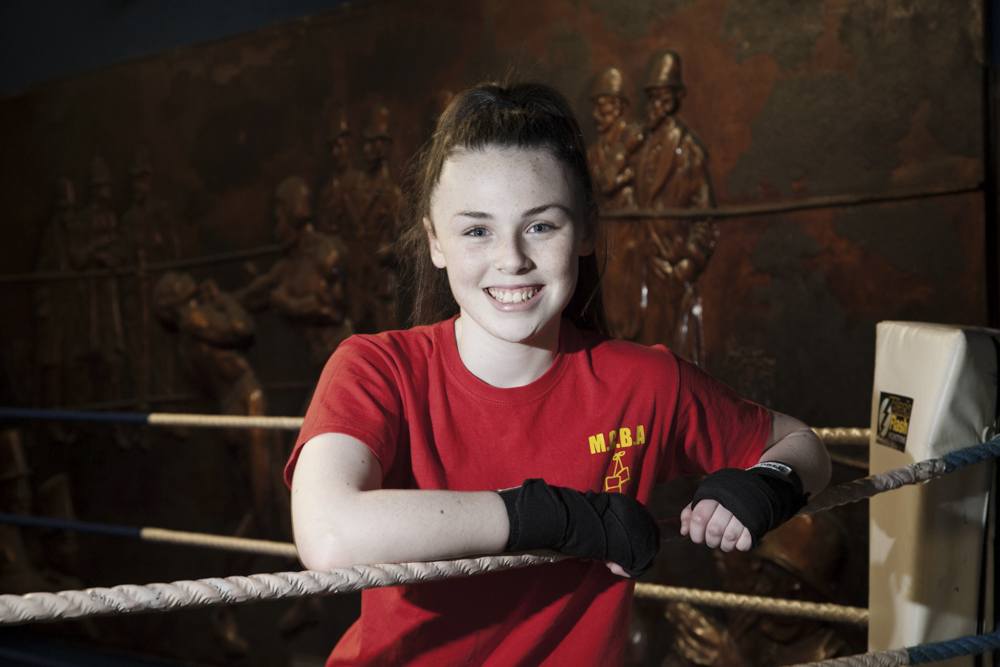 Ellie’s dad is here to pick up her brother. “It’s really improved her confidence,” Lee says. “She’s a totally different person. It’s all she talks about.”
Ellie’s dad is here to pick up her brother. “It’s really improved her confidence,” Lee says. “She’s a totally different person. It’s all she talks about.”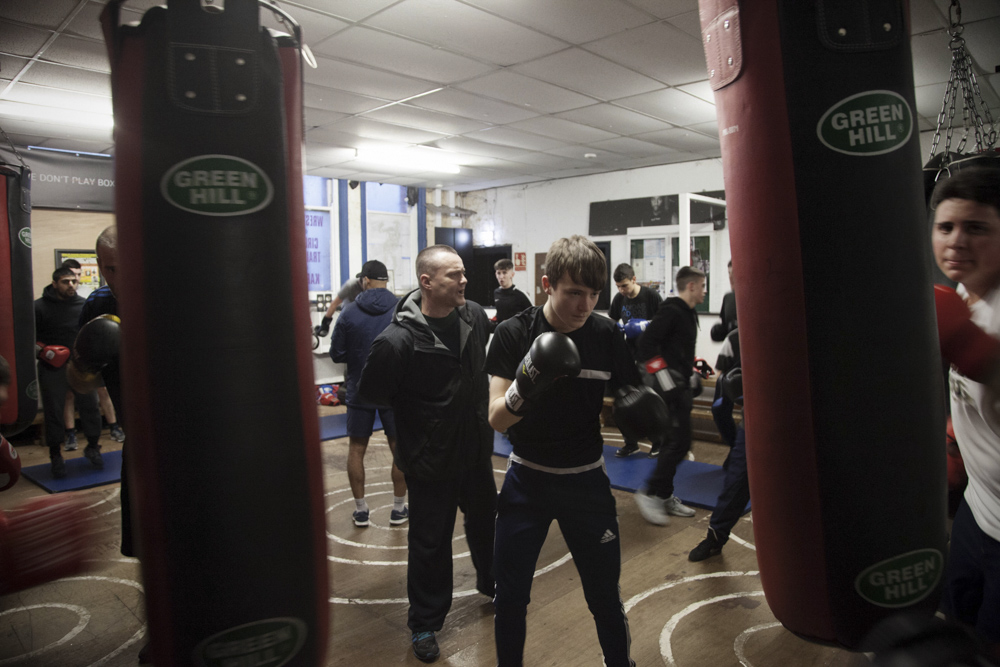 Tommy leads me through the weaving boxers. “Don’t be hitting Len now,” he says to no one in particular. A door on the other side of the gym leads to what looks as if it was once a storeroom. Now laptops sit on a couple of tables.
Tommy leads me through the weaving boxers. “Don’t be hitting Len now,” he says to no one in particular. A door on the other side of the gym leads to what looks as if it was once a storeroom. Now laptops sit on a couple of tables.